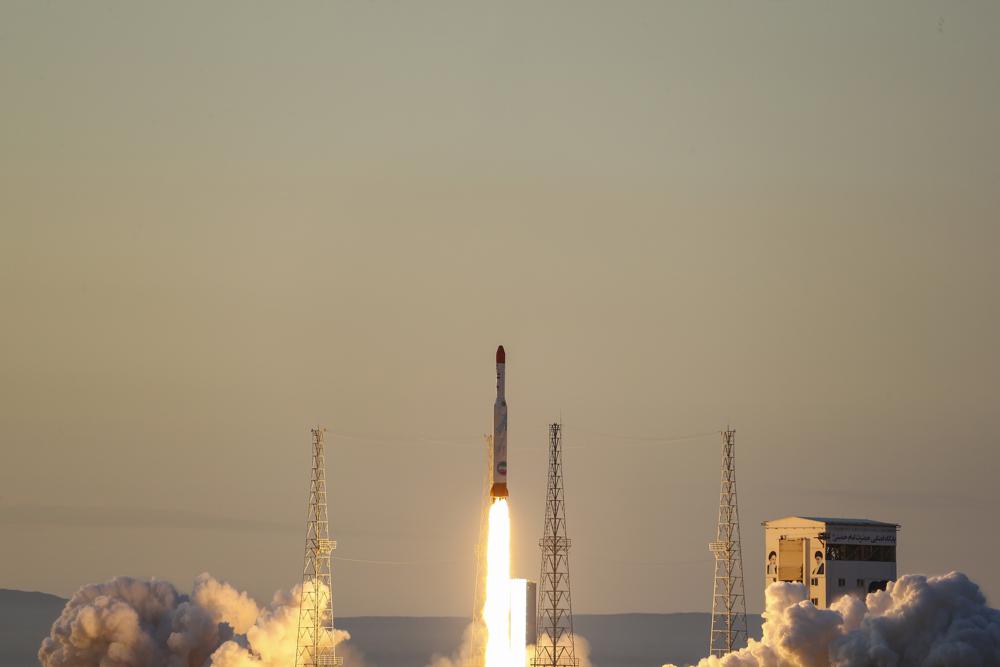
By Parisa Hafezi
DUBAI (Reuters) -Iran has resumed 20% uranium enrichment at an underground nuclear facility, the government said on Monday, breaching a 2015 nuclear pact with major powers.
Benjamin Netanyahu, prime minister of Iran’s arch foe Israel, said the move was aimed at developing nuclear weapons and Israel would never allow Tehran to build them.
The enrichment decision, Iran’s latest contravention of the accord, coincides with increasing tensions between Iran and the United States.
Tehran started violating the accord in 2019 in a step-by-step response to Trump’s withdrawal from it in 2018 and the re-imposition of U.S. sanctions lifted under the deal.
The agreement’s main aim was to extend the time Iran would need to produce enough fissile material for a nuclear bomb, if it chose to, to at least a year from roughly two to three months. It also lifted international sanctions against Tehran.
“A few minutes ago, the process of producing 20% enriched uranium has started in Fordow enrichment complex,” government spokesman Ali Rabiei told Iranian state media.
The U.N. nuclear watchdog confirmed that Iran had started the process of enriching uranium to 20% purity at its Fordow site.
“Iran today began feeding uranium already enriched up to 4.1 percent U-235 into six centrifuge cascades at the Fordow Fuel Enrichment Plant for further enrichment up to 20%,” the IAEA said in a statement on a report that was sent to member states.
The step was one of many mentioned in a law passed by Iran’s parliament last month in response to the killing of the country’s top nuclear scientist, which Tehran has blamed on Israel.
“Our measures are fully reversible upon FULL compliance by ALL (parties to the deal),” tweeted Iranian Foreign Minister Mohammad Javad Zarif.
Tehran insists it can quickly reverse its breaches if U.S. sanctions are removed.
NUCLEAR WATCHDOG
The White House National Security Council had no comment, and referred queries to the U.S. State Department, which did not immediately respond to a request for comment.
Tehran’s move could further hinder efforts to salvage the pact as its breaches have increasingly worried some of the deal’s other parties, which have urged Iran to act responsibly.
In Brussels, a European Union Commission spokesperson said that the “move, if confirmed, would constitute a considerable departure from Iran’s commitments”.
On Jan 1, the IAEA said Tehran had told the watchdog it planned to resume enrichment up to 20% at the Fordow site, which is buried inside a mountain.
“The process of gas injection to centrifuges has started a few hours ago and the first product of uranium hexafluoride (UF6) gas will be available in a few hours,” Rabiei said.
Iran had earlier breached the deal’s 3.67% limit on the purity to which it can enrich uranium, but it had only gone up to 4.5% so far, well short of the 20% level and of the 90% that is weapons-grade.
U.S. intelligence agencies and the IAEA believe Iran had a secret, coordinated nuclear weapons program that it halted in 2003. Iran denies ever having had one.
In Jerusalem, Netanyahu said Iran’s enrichment decision could be explained only as a bid to “continue to carry out its intention to develop a military nuclear program.” “Israel will not allow Iran to produce nuclear weapons,” he added
(Additional reporting by Arshad Mohammed in Washington, Jeffrey Heller in Jerusalem, Michael Shields and Francois Murphy in Vienna and Marine Strauss in Brussels Writing by Parisa Hafezi; Editing by William Maclean)












